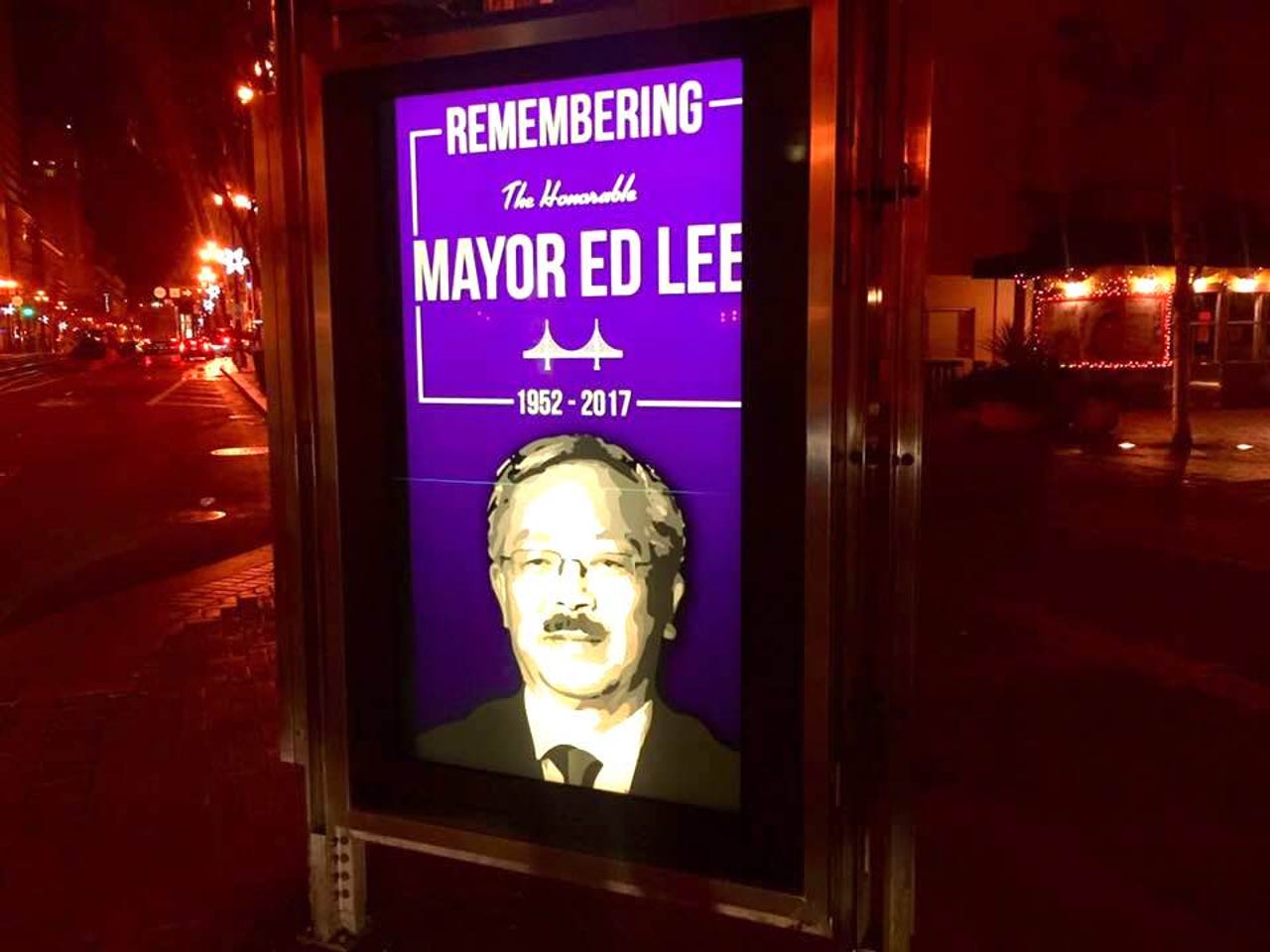San Francisco mayor's death signals tougher times for tech


A bus shelter in San Francisco celebrates mayor Ed Lee's life.
San Francisco mayor Ed Lee's sudden death on Tuesday raises the prospect that the next mayor will not be as friendly as he was to tech companies -- some such as Twitter have managed to gain huge tax breaks that critics say comes at the expense of city services in one of the poorest neighborhoods.
Lee died at the Zuckerberg San Francisco General Hospital - he was 65 years old. Top tech executives tweeted their sadness at the news including Twitter founders Biz Stone, Jack Dorsey; plus Marc Benioff, CEO of Salesforc; and Max Levchin co-founder of PayPal.
Tax deals for rich startups...
Mayor Lee gave large tax breaks for tech companies promising to relocate to the Mid-Market Street/Tenderloin area of San Francisco -- a very poor neighborhood hoping that it would boost local community and small businesses. However, Twitter and the other companies that accepted the tax breaks -- offer their staff competing services to those of local small businesses such as food, haircuts, dentists, apartment cleaners, etc. There is little direct economic benefit to the local residents.
It will be many years before the city can reap the benefits of todays tax breaks -- that's if the tech companies survive that long -- which they generally don't. San Francisco could potentially lose hundreds of millions of dollars because of the tax deals. In 2014 alone, the city lost $34 million to the tax break.
New Breed mayor...
The interim mayor is London Breed, San Francisco's first African-American woman mayor (Lee was the city's first Asian-American mayor). Breed recently drafted a law that would regulate Airbnb rentals and which Lee had to veto. Lee's veto is gone.
San Francisco mayor Ed Lee in 2014 at an event on mid-Market street.
Foremski's Take: What's the use of having tech companies in your city if they want special treatment? Twitter is located in one of the poorest districts-- yet it insists on paying less than it should to the city -- it would rather be a burden on its neighbors than ease the burden of others.
Tech needs to step up in San Francisco and across the Bay Area. Why do our cities face the same problems as all other cities? Why do our public schools have such high drop out rates?
Changing the world...
The future is bright but our infrastructure is falling apart?! It does not make sense-- it's all hot air -- a stinking halitosis of hypocrisy. Silicon Valley needs to fix this. Our communities and institutions should be showcases -- not basket cases.
San Francisco hasn't seen much benefit from the tech boom -- rents have sky-rocketed; huge black-windowed buses clog the streets picking up Silicon Valley workers; favorite small restaurants and stores are closing; there are hardly any restaurants open past 10pm and no music in North Beach jazz bars!!!
It feels like the suburbs moved into San Francisco and then complained about the music and dancing. They should move to Pleasanton.
I'm hoping that the new mayor will try to integrate the tech community more with its neighbors.
The tech workers have no choice -- they have to get on the bus. They leave early in the morning and are back late in the evening. They are strangers on their own streets.
The city -- with its counter-culture heritage -- should help these young people get off the company buses and into their neighborhoods.
The company man...
When was it cool to be a company man or a company woman? It was never cool in San Francisco. Eating at the company lunch counter, being paid in company script, singing the company jingles, socializing at the company, working out at the company gym.
The city should insist that in exchange for letting these corporations use the public bus stops, that their staff are allowed to telecommute one day a week from home. It makes no sense to ship them 100 miles each day. That way the tech workers can lunch locally, and they get to see and be seen by their neighbors. There's less conflict when people know each other.
Integrate not segregate...
The city will see benefits from integration because engineers solve problems. But they have to see the problems.
For example, the police sweep the homeless away from the streets outside Twitter HQ. Leave the homeless alone. Because that sharp smell of stale urine will act like smelling salts -- it will awaken the innovation centers in the brains of the engineers passing by, and we'll soon have an app to help the helpless, likely more than one.
The tech community needs to be integrated and not segregated into protected enclaves, with faces hidden behind blacked-out buses.
The city of San Francisco has lots of problems but if you solve one of them -- there's a good chance you've solved it in every city, too. That's a massive market. We will all benefit from integration.